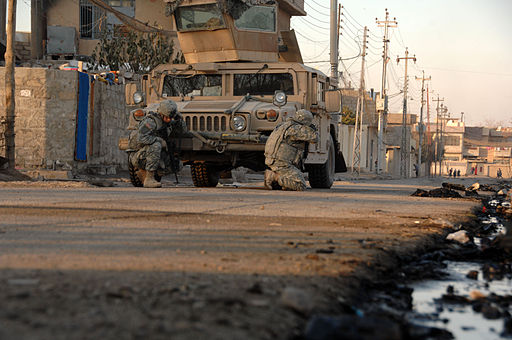Climate Change, Clashes and Riots
Are recent clashes and riots affected by climate change? And […]
Are recent clashes and riots affected by climate change? And if so to what extent?
An exhaustive study of a wide range of conflicts over thousands of years has found that rising temperatures are inevitably linked to an increase in violence.
Stand by for more violence. As planetary temperatures rise, so does the likelihood of murder, rape and domestic violence, as well as civil war, ethnic bloodshed and invasion, the collapse of government and even the collapse of civilisation.
Three US scientists report today that they analysed 60 studies by 190 scholars published in 26 journals of 45 different conflicts around the world, and spanning thousands of years of human history, and came to one grim, clear conclusion.
With every significant shift in temperature there was an increased risk of social or societal violence, they report in the journal Science. Climate News Network
One would assume that riots will be especially common with projected food and water shortages, see for instance: UN warns of food riots in developing world as drought pushes up prices. But maybe we already are affected from rising temperatures and various climate change impacts? One particular study from 2011 offers a good overview of all these aspects: The Psychological Impacts of Global Climate Change.
The psychosocial impacts of climate change include large-scale social and community effects of issues such as heat-related violence (Anderson & DeLisi, in press), conflicts over resources (Reuveny, 2008), migrations and dislocations (Agyeman, Devine-Wright, & Prange, 2009), postdisaster adjustment (Norris, Stevens, Pfefferbaum, Wyche, & Pfefferbaum, 2008), and chronic environmental stress (Albrecht et al., 2007). The effects of climate change fall disproportionately on those of less economic privilege or social status and thus have social justice implications that demand consideration (Agyeman, Bullard, & Evans, 2003; McMichael, Friel, Nyong, & Corvalan, 2008).
Climate change is most concretely represented in the public mind as “global warming” (Meehl & Tebaldi, 2004). In addition to health impacts (Poumadere, Mays, Le Mer, &`Blong, 2005), the predicted warming is likely to have some direct impacts on human behavior. On the basis of experimental and correlational research, Anderson (2001) concluded that there is a causal relationship between heat and violence and that any increase in average global temperature is likely to be accompanied by an increase in violent aggression. Predictions include a rise of about 24,000 assaults or murders in the United States every year for every increase of 2 degrees Fahrenheit in the average temperature. In a more recent article, Anderson and DeLisi (in press) described some of the probable effects of climate change on violence. Both lab-based manipulations of temperature and comparisons of differences in violent crime associated with seasonal and regional temperature differences indicate that heat can have an immediate effect on violent tendencies. More subtle but possibly more powerful long-term impacts may result from an effect of heat on fetal and child development.
This certainly needs consideration when judging violence in general, and even more so with rising temperatures. We just had the warmest November on record, which brought 2013 up to the 5 warmest years on record. There are many reasons and there are different situations, but with further observation of frequency, intensity and outcomes of any violent event we can study how far reaching the impacts really are. In the meantime, people should be at least aware of the implications.
Maybe part of a solution to violence would mean more social justice, more income equality to relieve people of stress, to cool heads.
News from the last couple of days
Police clash with protesters in Turkey
Railway workers, police scuffle in Seoul
Clashes in Hamburg over closing of community center
Thousands rally in Cambodia demanding PM step down
Anti-government protest continues in Kiev
Thousands gather to demand Thai PM resigns
2 Killed in Yemen Riots After Tribal Leader Killed
Singapore shocked by worst riots since 1969
Riots follow Myanmar football exit from Southeast Asian Games
Rioting In China’s Restive Xinjiang Region Kills 16 People, Including 2 Policemen
Mursi supporters clash with Egyptian police in Cairo and Alexandria
Violence escalates in South Sudan
UN warns of worsening food crisis in Central African Republic
Italy: students clash with police
Violent clashes break out in Madrid
At least eight dead in Argentina after looting
Protest on anniversary of teenager’s death turns violent in Greece
Protests erupt in India after diplomat’s arrest in US
Related
Climate Change and Food Riots
Climate Change Will Drive Violence and Conflicts – But We Can Stop It
How climate change destroys human rights
The only way to stop climate change now may be revolution
A Nonviolent Insurgency for Climate Protection
